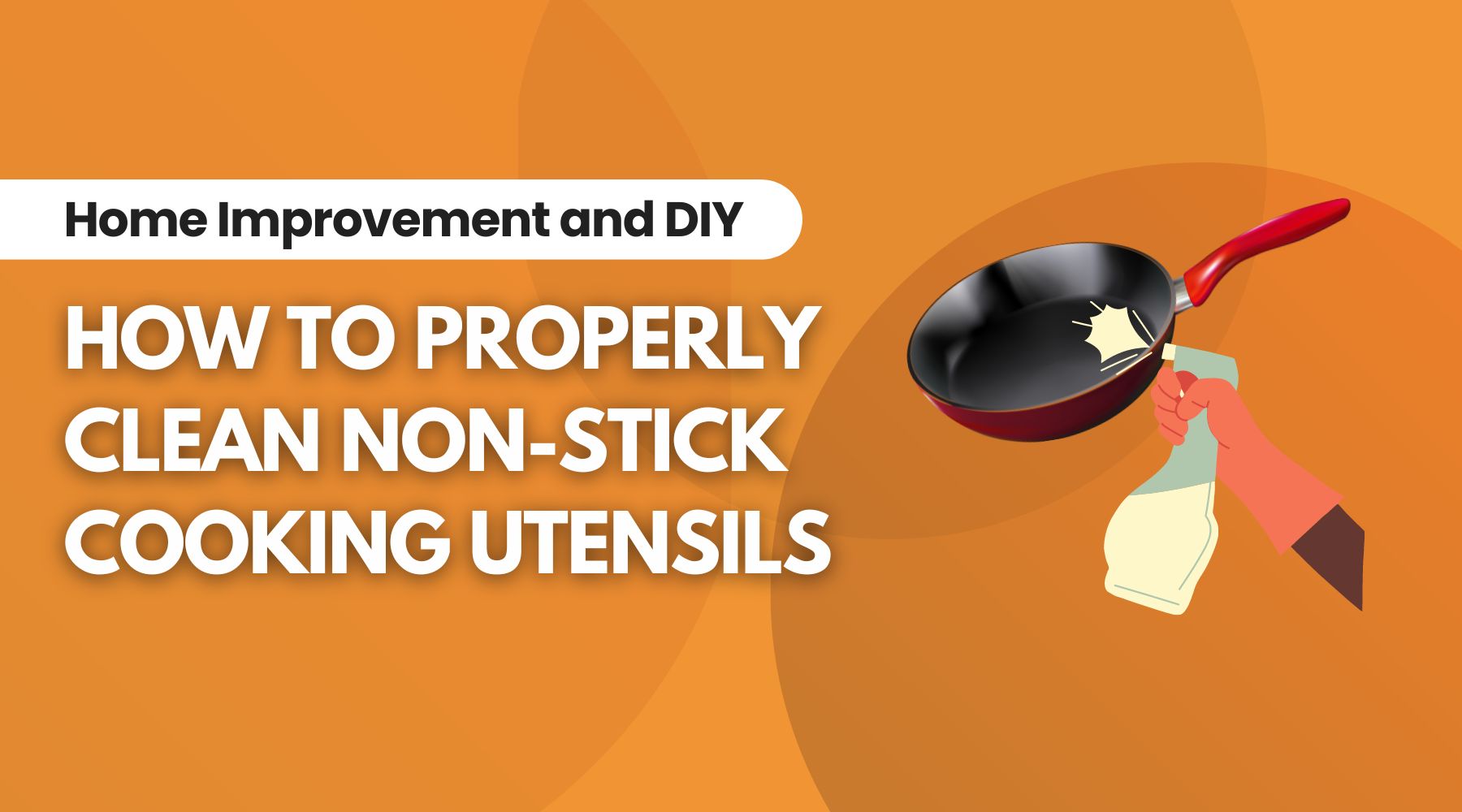
How to Clean Non-Stick Cooking Utensils
Non-stick cooking utensils are a kitchen essential, offering convenience and easy clean-up for everyday cooking tasks. However, to maintain their effectiveness and longevity, it's important to clean them properly. Here’s a step-by-step guide on how to clean non-stick cooking utensils while preserving their non-stick properties.
1. Cool Down First
Before cleaning, allow the non-stick utensils to cool down completely. Placing hot non-stick cookware in cold water can cause warping and damage the non-stick coating.
2. Gentle Washing
Use warm, soapy water and a soft sponge or cloth to wash your non-stick utensils. Avoid using abrasive pads or steel wool, as these can scratch and damage the non-stick surface.
Step 1: Fill the Sink
- Fill your sink with warm water and add a few drops of mild dishwashing liquid. Avoid using harsh detergents as they can degrade the non-stick coating over time.
Step 2: Soak the Utensils
- If there are food residues stuck to the utensils, let them soak in the soapy water for a few minutes. This will help loosen any stubborn bits and make cleaning easier.
Step 3: Wipe and Rinse
- Gently wipe the utensils with a soft sponge or cloth. Pay attention to any grooves or edges where food might be trapped. Once cleaned, rinse thoroughly with warm water to remove any soap residue.
3. Avoid High Heat
Non-stick utensils are sensitive to high heat. Avoid using excessive heat when cooking, as this can damage the non-stick coating and reduce its effectiveness. Stick to low or medium heat settings for the best results.
4. Non-Abrasive Cleaning Tools
Always use non-abrasive cleaning tools to avoid scratching the non-stick surface. Opt for silicone, wooden, or plastic utensils when cooking with non-stick pans to prevent damage.
5. Baking Soda for Tough Stains
For tough, burnt-on stains, make a paste of baking soda and water. Apply the paste to the affected area and let it sit for about 15-20 minutes. Gently scrub with a soft sponge and rinse thoroughly. Baking soda is a natural abrasive that can help lift stubborn stains without damaging the non-stick coating.
6. Dry Properly
After washing, dry your non-stick utensils thoroughly with a soft cloth or towel. Leaving them to air dry can lead to water spots and potential damage to the non-stick coating over time.
7. Store with Care
Store non-stick utensils properly to avoid scratches and damage. If you stack them, place a soft cloth or paper towel between each utensil to protect the non-stick surface.
8. Avoid Dishwasher Use
Although some non-stick utensils are labelled as dishwasher-safe, it’s best to wash them by hand. The harsh detergents and high heat in dishwashers can degrade the non-stick coating over time, reducing the lifespan of your utensils.
9. Regular Maintenance
Perform regular maintenance on your non-stick utensils to keep them in top condition. Check for any signs of wear or damage, such as scratches or peeling. If the non-stick coating starts to deteriorate, it may be time to replace the utensil to ensure safe and effective cooking.
10. Use Proper Cooking Oils
When cooking with non-stick utensils, use a small amount of oil or butter to enhance the non-stick properties and prevent food from sticking. Avoid aerosol cooking sprays, as they can build up on the surface and damage the coating.
Conclusion
Cleaning non-stick cooking utensils properly is essential for maintaining their performance and extending their lifespan. By following these tips, you can ensure your non-stick cookware remains in excellent condition, providing you with convenient and enjoyable cooking experiences for years to come. Treat your non-stick utensils with care, and they will reward you with consistent, easy-to-clean results.
